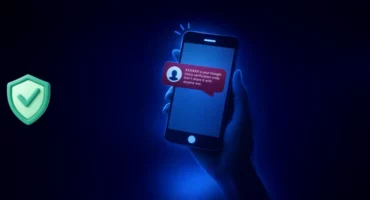Helpful Guide to Avoiding Internet Surveillance
Network attacks are relentless, aggressive, and merciless. The Internet is rife with viruses, e-spyware, and intrusive advertisements. It is full of hackers, extortionists, hidden observers, and other dangerous individuals.
All information that you leave on forums, social networks, chats, and other Internet resources is instantly analyzed and, if necessary, replicated. This gives stakeholders a wealth of information about your personality and occupation, financial situation, as well as preferences, explicit or hidden desires, fears, and concerns, etc.
What Is Covert Internet Surveillance and How Does It Happen?
Surveillance on the Internet is conducted for everyone, without exception. It can be relatively harmless. For example, when done for social research or advertising purposes. It is not difficult to guess about it. After visiting a thematic resource, corresponding advertising offers begin to appear on the screen.
In particular, if you discussed car repairs yesterday on the forum, today, the monitor will display information about service stations and the sale of spare parts. If you talked about the child’s admission to college, advertisements for tutors will be displayed. If you have consulted about dog training – you will be offered new types of dog food, etc.
This is what marketing agencies do. Advertising like this can be annoying – but overall, this type of surveillance is relatively harmless. But in any case, the fact that you are being followed is always unpleasant. The main danger comes from:
- Modern smartphones. Many models imperceptibly spy on their owners. For example, remembering where and what he photographed, with whom and on what resources he communicated, etc.;
- Social networks. It is here that the representatives of the criminal take the data necessary for theft, extortion, blackmail, and other types of encroachment. People themselves provide criminals with useful data, taking regular photos from the window of their own homes. In addition, they tell where they will spend their vacation, share various personal information, describe the specifics of their work, etc.;
- Forums, chats, and e-mails. There is a list of expressions and words, the use of which instantly arouses the corresponding interest on the part of special services. Further, everything depends on the development of the situation. For example, often, a person is persuaded to cooperate using materials that compromise him. And they can be obtained in the course of a specially planned provocation. Compromising evidence can relate to work, personal life, as well as problems with the law.
It should be assumed that any assurances from the owners of web resources about the anonymity of accounts and email addresses of users and their protection from unauthorized access are untenable. Firstly, they are obliged to open an account at the first request of the special services, and secondly, modern hackers can break almost any protection.
Internet Surveillance Self-Defense
If you feel danger, you need to take measures that, in principle, exclude its further development. Stop communicating with suspicious interlocutors immediately and completely by deleting them from all your contacts and, if possible, sending them to the “blacklist.” Better yet, use whitelisting so that only people you know well can contact you.
Blackmail and extortion are successfully suppressed by law enforcement agencies. They have at their disposal quite effective technical and software tools that make it possible not only to calculate the reallocation of intruders but also to identify them with subsequent arrest. But in many cases, this may not be necessary since often blackmail and extortion are ordinary bluffs. For example, if a window appears on the screen with a request to send money for unlocking the computer, the problem can be solved by reinstalling Windows or running an antivirus program. The requirement to pay a fine for visiting certain resources is a clear sign of fraud since the regulatory authorities act completely differently in such situations (a case of an offense is opened, a summons is sent, etc.).
If you feel that you are being followed, first scan your computer with a good anti-spyware application. The next stage is a quick, traceless, and permanent deletion of your pages on social networks. Not hiding or changing privacy settings, but complete deletion. Quickly set up a new mailbox and give this address to people with whom you corresponded before. Perhaps, the old e-mail has already been hacked and cannot be used. However, observers can deliberately leave access to it to read the correspondence freely. Finally, use remote connectivity tools and apps like TeamViewer cautiously.
VPN as a Means of Protection from Internet Surveillance
An effective means of protecting against Internet surveillance is the use of a VPN. With the right selection of all components, VPN technology provides anonymity in the network and a high level of encryption of transmitted information.
Avoid Internet surveillance and secure your data online. Anyone can do this, and the main thing is to follow the rules described above.
VeePN is freedom
Download VeePN Client for All Platforms
Enjoy a smooth VPN experience anywhere, anytime. No matter the device you have — phone or laptop, tablet or router — VeePN’s next-gen data protection and ultra-fast speeds will cover all of them.
Download for PC Download for Mac IOS and Android App
IOS and Android App
Want secure browsing while reading this?
See the difference for yourself - Try VeePN PRO for 3-days for $1, no risk, no pressure.
Start My $1 TrialThen VeePN PRO 1-year plan







